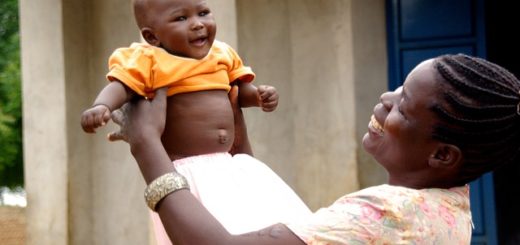Terms of Reference for conducting baseline survey in Nyakach Local Rights Program (LRP) – ActionAid International Kenya (AAIK)
1.1 Introduction
ActionAid International Kenya (AAIK) is a Non-Governmental Organization (NGO) working in Kenya since 1972 to facilitate processes that eradicate poverty and ensure social justice through development programmes, local institutional capacity building, and public policy influencing.
ActionAid supports programme implementation in the AAIK Local programme rights implementation areas in 16 counties where we have a physical presence in Homabay, TaitaTaveta, Embu, Kilifi and Garissa Makueni, Nairobi, Kajiado and Mombasa Counties and work in partnership with local organizations and communities living in poverty and exclusion.
ActionAid employs a Rights-Based Approach to development. In focusing on tackling the causes of poverty – not just addressing the symptoms – our work has gone far beyond service delivery, to empowering people living in poverty to claim their rights and assert their freedoms to address the condition and position of constituents of people living in poverty and exclusion. AAIK works in solidarity with women and young people living in poverty and exclusion; connecting their voices, sharing ideas, spreading inspiration, campaigning, advocating, and formulating public policy to eradicate poverty and ensure social justice.
ActionAid mission is to empower women, young people, and communities living in poverty and exclusion to fight poverty and injustices with a focus on the following strategic objectives:
1. Women living in poverty and exclusion and their communities attain economic security, and political leadership, and are free from all forms of violence.
2. Young People and communities living in poverty and exclusion realize their economic rights and access to GRPS through democratic just governance.
3. Women Living in Poverty and Exclusion and their Communities have secure land tenure, sustainable and resilient livelihoods in fragile contexts, and in the face of humanitarian and climate crises.
A free and democratic civic space allows women, HRDs, civic actors, and their institutions to individually enjoy their rights to democratic and just governance. (Under development)
1.2 Background Information
ActionAid International Kenya (AAIK) conducted a desk survey for a possible new Local Rights Program (LRP) where interventions can take place in Nyakach Sub-County. This move was necessitated by the need to have an existing Local Rights Program in the Western region after the phase-out of Kongelai, Tangulbei, and Kuria LRPs in the Western region after attaining their maturity. AAIK needed to prepare a new rural LRP where child 2 sponsorship links can be transferred to sustain this critical funding mechanism for the organization. The purpose of a Local Rights Programme (LRP) in the context of ActionAid is to implement in an area, the programme that empowers people living in poverty to critically analyze their situation and initiate actions toward sustainable development.
The programs to be initiated have an emphasis on the capacity building of people living in Southwest Nyakach and their institutions to organize themselves around activities that alleviate their poverty condition and claim their rights, with a focus on women’s empowerment. Nyakach sub-county is one of the seven counties in Kisumu County. Nyakach sub-county comprises 7 wards which are Southwest Nyakach, North Nyakach, Central Nyakach, West Nyakach, and South East Nyakach wards. ActionAid intends to make an entry into South West Nyakach Ward to extend its program work and also initiate child sponsorship in the area.
2.0 Rationale of the Baseline Study.
After carrying out the desktop survey and a participatory rural appraisal, ActionAid intends to carry out a comprehensive baseline survey to deeply understand and document the issues that are affecting the residents of Southwest Nyakach so that they can be guided to set their priorities for long-term development.
The baseline study will focus on the expected results of the interventions that will be informed by the findings from conversations with communities on the causes of poverty and how communities with support from ActionAid employ participatory approaches to tackle poverty. This will involve the use of secondary data-desk review to be able to avail information to the community of Southwest Nyakach for informed decisions on development approaches to be adopted in the next 10 years.
2.1 Objective of the Survey:
ActionAid International Kenya is seeking qualified consultant(s) to conduct an independent baseline for its program in Nyakach LRP. The baseline study will determine baseline values and include an assessment of the latest contextual dynamics in and around the Nyakach LRP to subsequently inform program and monitoring activities, as well as contribute to institutional learning and research. The main objective of this baseline assessment is to capture data and information that will enable the program to establish a prevailing situation in Nyakach regarding human rights, level of poverty, and injustices and use the information to develop a comprehensive inclusive program to address the different challenges faced by the community in Nyakach LRP.
2.1.1 Specific objectives of the baseline survey aim to:
- To collect data that will be used to determine the level of change on impact and outcome indicators between baseline, midterm evaluation, and end-term evaluation.
- To obtain an understanding of challenges and constraints faced by the target community and their current status of needs in as far as human rights are concerned.
- Determine the extent to which the community members have organized themselves in pursuit of their constitutional rights.
- Develop and propose interventions that could be put in place to ensure communities’ rights are protected.
2.1.2 Scope of Work
The scope of the LRP evaluation shall be in South West Nyakach Ward in Nyakach Sub County. We are looking for an individual consultant or group who can apply innovative, participatory, and inclusive methodology. Some preferred tools include child and women’s rights analysis, power analysis, and Knowledge Attitude and Practices tools in accordance with the Human Right Based Approach and feminist principles should be utilized throughout this evaluation. The methodology shall not be limited to Desk Review, Focus Group Discussion), Key Informant Interviews, in-depth interviews, and case studies to collect both quantitative and qualitative data from relevant actors engaged in the LRPs.
- Develop a baseline survey questionnaire, collect data from the field, and data analysis.
- Interpret findings from the field in perspective of the set strategic objectives to guide program work
- Analyze the existing scenario and recommendations for the project implementing team based on the strategic objectives described above.
- Develop a comprehensive baseline report of the program.
2.1.3 Geographic Locations
The locations of the assessment will be in South West Nyakach Ward which is composed of 2 locations that include Obot Location and South west Kadianga Location. The area is further divided into three sublocations which are Gari sublocation, Kajimbo sub-location, and Southwest Kadianga sub-location.
3.0 Methodology
The consultant is expected to propose and design the methodology for conducting the baseline survey. A mix of qualitative and quantitative methods such as surveys, focus group discussions and in-depth interviews with key informants, and observation methods will be used to collect primary data. Surveys and interviews are expected to take place at all program locations. The consultant is also expected to collect secondary data using desk survey. What to look for but not limited to this:
- Population distribution by age cohort (male, female, youths, elderly, special interest groups i.e. orphans, persons with disability)
- Topography, soils and climate
- Physical Infrastructure (road network and condition, electricity, mobile phone coverage)
- Health indicators (infant mortality, maternal mortality, life expectancy, HIV and AIDS, doctor-patient ratio, average distance to health facility)
- Education indicators (number of primary schools, number of secondary schools, tertiary and university, pupil enrolment by gender, retention and dropout rates by gender, performance in national exams, status of school infrastructure, teacherpupil ratio, literacy level)
- Women’s rights indicators (women elected in leadership positions, the existence of women groups advocating for women’s rights, GBV occurrences, women economic empowerment initiatives, level of understanding of women’s rights)
- Sponsorship Potential (enrolment by age 5 years old to 10 years old)
- Agriculture and livelihoods (food security, sources of household incomes, marketing, youth empowerment programs)
- Water and sanitation (sources of water, distance, latrines use)
- Shelter (condition of housing – roofing, walling, and flooring materials)
3.1 Sampling:
The consultant/firm will implement a sampling procedure that is representative of the project’s target population. The baseline must achieve a statistically acceptable sample size for the respective project participant categories. The consultant will develop, and abide by the approved sampling methodology. Therefore, an unambiguous proposal on sampling methodology and sample size is expected from the consultant. The sampling method should attain representative and generalizable results for all project participant categories.
3.1.1 Data sourcing:
The baseline measurement considers both primary and secondary data sources. The data sources will include, but are not limited to:
- Community leaders within the target communities for the project .
- Young people (females and males) .
- Religious Leaders, cultural leaders .
- Government officials such as chiefs, administration, teachers, health workers, state officers etc
- Local CSOs within the LRP .
- National and International development partners.
Participatory Rural Appraisal report for Nyakach, ActionAid Country Strategy Paper • KDHS data • Kenya Economic Survey 2021.
3.1.2 Data analysis.
The consultant should adopt an iterative data analysis approach. This approach allows for prompt data validation as enumerators collect data. Hence, the consultant/firm will develop a data analysis plan. Analysis should integrate findings from the different sources of data. The consultant should triangulate data from different primary data sources. Depending on access to the country and within the country, the consultant should factor in remote analysis and presentation of findings and sharing of documents.
3.1.3 Data Quality Issues
The designed data collection techniques, and quality of data should not be compromised, and maximum care should be taken to avoid or at least minimize errors at all stages of the baseline measurement process. Some techniques such as, but not limited to, the following will be applied:
● Before data collection: Pilot testing of the data collection tools will be required to verify the reliability and validity of the tools. This includes both face-to-face and remote approaches.
● During field data collection: For surveys, data entry will be on the spot using an electronic questionnaire. Monitoring enumerators for accuracy in doing the interviews and in capturing data will be necessary. Checking through all completed responses (daily) to ensure any mistakes or inconsistencies are corrected on time will add value to the quality of data.
Liaison and Coordination
AAIK will provide the overall guidance and supervision of the task through its Program Team. The consultant (s) will work closely with the LRP coordinator- Nyakach, the MEL coordinator, and the programs team. The overall accountability of this work rests with the Programs and Strategy Lead at ActionAid Kenya.
Expected Outputs
- Data collection tools for evaluation including FGD, KII guiding questions, case studies, partners, assessment tools, etc.
- Summary of raw data or keynote from fields.
- Produce a preliminary report and lead a presentation workshop to share findings with key stakeholders.
- One infographic report summarized the key findings of the evaluation.
- Final project evaluation report in English which should cover the following areas: Cover page, table of contents, Evaluation purpose, analysis, key findings, conclusions and recommendations, Methodology/approach, and limitations of the evaluation.
- A sustainability strategy for the project.
- A PowerPoint presentation summarizing the evaluation approach, key findings, and recommendations.
- High-resolution JPEG format photos where applicable and in line with ActionAid guidelines on consent.
Evaluation Timeline
The evaluation team will be responsible for carrying out tasks including developing evaluation protocol and data collection tools, field data collection, report writing and representation. The final evaluation process will take 25 working days which should started from time of signing the contract.
Budget
The evaluator/consultant is expected to give a detailed breakdown of the budget which should align with the evaluation work plan and showcase value for money.
Travel & accommodation and logistics
All official transport related to the assignment shall be availed where possible, and or travel expenses reimbursed based on actual and realistic costs. However, the consultant shall seek consent before incurring travel expense(s) if not provided with official transport. Accommodation shall be provided by AAIK at the venues of the assignment.
Desired Qualifications
The evaluation will require the consultant who has the required experiences and skills as follows:
- Extensive experience in project evaluation/impact assessment, especially in the areas of food security, NRM, education, women’s rights and gender, gender-based violence and DRR, and emergency or related sectors using HRBA approaches.
- Experiences in using participatory tools., including children and women’s rights analysis, power analysis, and KAP.
- Experiences/knowledge on movement building is preferable.
- Ability to evaluate the project from a children and women’s rights perspective.
- Understand policy analysis, formulation, policy influencing, and existing policies that protect and empower communities living in poverty to challenge rights violations.
- Strong analytical and writing skills.
- Good command of English, both writing and speaking.
- Understanding the local language is an added advantage.
Education: Master’s Degree or equivalent in Social Sciences, Economics, Development Studies, or related field.
Experience: The consultant is expected to have the following qualifications:
- Background knowledge of Kisumu County and the ability to speak the common/local language of the Sub-County in which the evaluation will be conducted.
- A minimum of eight (8) years of experience conducting related assessments with hands on experience conducting similar baseline studies.
- Knowledge of research, monitoring and evaluation methodologies, including quantitative and qualitative.
- Demonstrable experience in producing high-quality, credible research/assessments (a sample report of such is required).
- Evidence of experience in the use of HRBA in programming.
- Understanding and experience of working with state and non-state actors (at all levels) and international organizations.
- Knowledge of local governance and poverty contextual issues (desirable).
Submission of Expression of Interest.
- Interested candidates are invited to apply by sending the CV(s) of the lead consultant and the team of applicant(s), detailing competency alongside an expression of Interest detailing how they plan to deliver on the job, demonstrating how they understand the assignment, the methodology and tools for use and a detailed work plan of how they intend to undertake the assignment.
- A separate financial proposal with a clear distinction between fee rate and expected logistics costs.
- The names of at least 2 previous clients to contact for references.
How to Apply
Applications must be submitted electronically in one MS Word file to: Procurement.kenya@actionaid.org using the specific state as subject line Baseline of Local Rights Programme in Nyakach Sub-County not later than 7th March 2024. Failure to adhere to instructions on submissions could invalidate your application.








